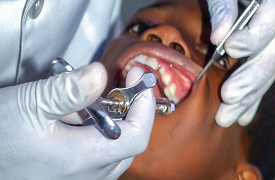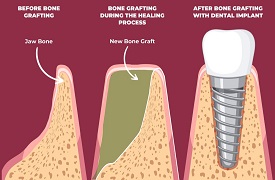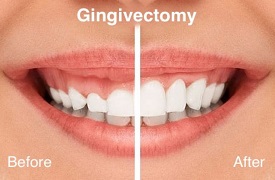
Extractions
Sometimes, a tooth can become too damaged or diseased to be saved. In these cases, extraction, the surgical removal of a tooth, becomes necessary. This can be a straightforward procedure for a loose or single-rooted tooth, but complex extractions might be needed for impacted wisdom teeth or teeth with multiple roots.
See MoreSinus Lifts
A sinus lift procedure is performed when there isn't enough bone for an implant. This minimally invasive surgery involves carefully lifting the sinus membrane in the upper jaw to create space for bone grafting material. Over time, this material fuses with the existing bone, creating a strong foundation for dental implants.
See More
Bone Grafting
Bone loss can hinder the placement of dental implants or even compromise the stability of existing teeth. Bone grafting procedures involve transplanting bone tissue from another location in the jaw or mouth into the deficient area. The grafted bone promotes new bone growth, creating a solid foundation for future dental procedures.
See More
Gingivectomy
This procedure addresses excessive gum tissue that covers too much tooth surface, creating a "gummy smile." A gingivectomy involves surgically reshaping the gum tissue to expose more of the natural tooth crown for a more aesthetically pleasing smile. It's important to note that gingivectomy is primarily a cosmetic procedure and might not be suitable for everyone.
See More